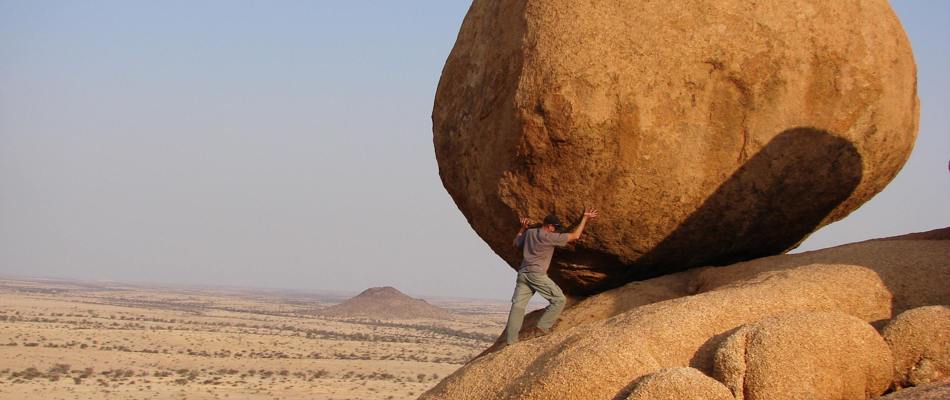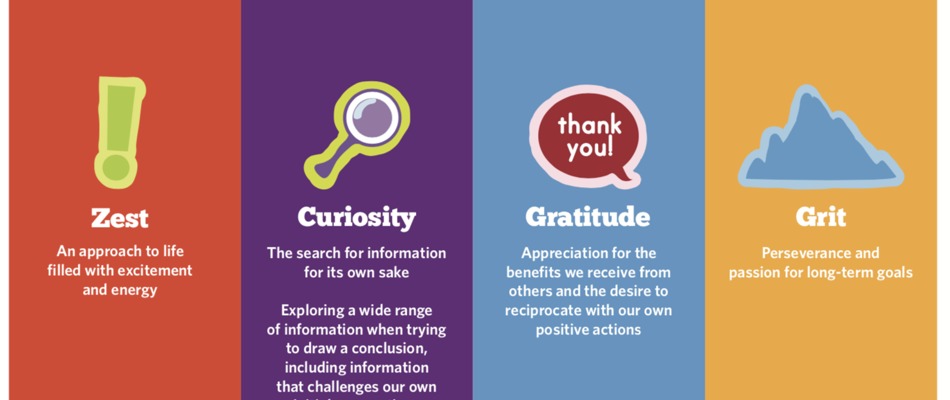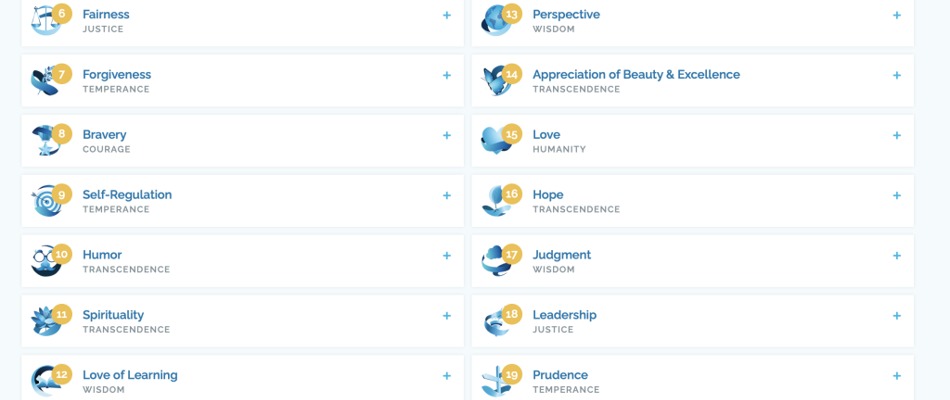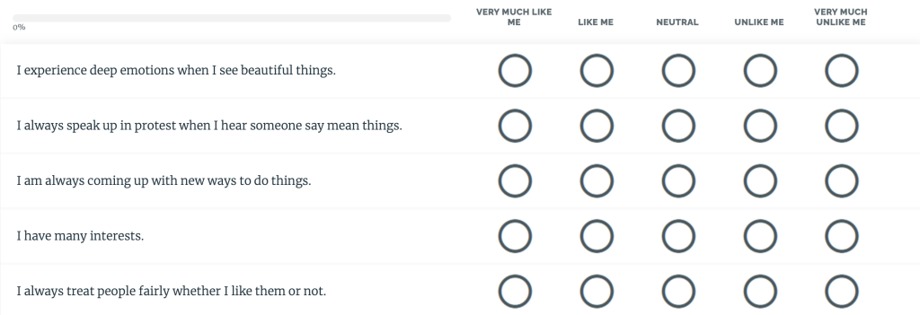Character dispositions: Teach them, but don't measure them
Back
This piece was initially published as "Character dispositions. Teach them. Model them. Develop them. Celebrate them. But, please, don’t measure them" on Tom Sherrington's blog, Teacherhead, in February here.
Recently, on various panels, in responses during training events and in articles I’ve read, I’ve encountered people reacting to the current curriculum and assessment debates by promoting the idea that we should be giving more value to developing students’ dispositions – to their character – rather than focus so much on grades and an over-full knowledge curriculum. I always find it interesting when people project a sense that these things are in opposition, even if they are at pains to state that we should avoid the false polarity. I think it’s a common theme – the idea that we should be developing rounded individuals who are good, kind, creative and collaborative people who, when faced with challenges, are resilient and determined linked to the idea that our knowledge-crammed exam-heavy curriculum assessment system doesn’t support this. We don’t measure these things and, therefore, we don’t value them enough – so the argument goes.
My concern about some of the commentary comes in two areas:
- Confusion and delusion around the links between the dispositions that are developed and the actual things children do.
- The idea that, in order to rebalance the ‘we value what we can measure’ scales, we should measure character dispositions and include these measures in our overall assessment of students’ capabilities.
What do students actually do?
 Part of the KIPP ‘Character Counts’ approach.
Part of the KIPP ‘Character Counts’ approach.
The image above is one of hundreds of similar things schools produce to promote character traits. Each one has value – even if we might debate what’s on the list. It’s ‘motherhood and apple pie’ stuff. But my question is always: but what do students actually do?
Recently I asked some school leaders to tell me what they would include in a series of pictures of things happening in their school that would represent their values embedded in their school curriculum. Most talked about students debating, painting, writing stories, doing experiments.. tangible activities you can see. But a few people responded with things like ‘resilient confident children’. I found that interesting. I said ‘but what is in the picture? What are they actually doing?’. The thing is you can’t plan children’s confidence or resilience – you can only plan the activities they will do and the way those things are given value. You can’t just will these character traits into being by being passionate about them. They are products of children’s total experience – not a result of you putting them on posters or talking about them in assemblies or running a couple of ‘theme days’ a year.
There are lots of things we do in life – and can do in the curriculum if we choose, away from the world of exams and assessment – that might support building character. I’m a big fan of outdoor education, getting city kids hiking in the outdoors, building fires, camping, being away from home with no phones. I’m a big fan of children learning musical instruments, having opportunities to sing, play in a band, join the orchestra. I’m also a fan of giving students real responsibility for organising real events and activities. Why? Because they represent modes of learning that are demanding, enriching, rewarding, fulfilling and yes- character-building. But which character traits to they develop? Who can say? All we can do is offer multiple opportunities to provide fulfilment and challenge so that students have the opportunity to explore a wide range of their capabilities, attitudes, dispositions – but if we try to specify them, we could be wrong. My list of character-building things to do also includes studying really hard and preparing to perform in high stakes situations – a performance, a concert, a speech and yes, a hard exam that matters.
As a school leader trying to hoop-jump to maintain precarious funding-streams I found myself having to humour bullshit all too often. What impact has your outdoor education and music tuition programme had on students’ resilience, self-discipline, capacity for teamwork.. their GCSE results?! Such a load of tosh. I wish I’d had the courage to call it out at the time. Why wasn’t it enough just to say ‘these things are good things that we value for their own sake, thanks for supporting them; doing them IS the reason we need the money – not the spurious spin-offs. ‘
At a more basic everyday level, I’ve had the conversation with teachers lots of times about building students’ confidence through good teaching. Scaffolding that supports them with writing or with speaking French – but then must come down; they don’t fully learn unless they try without the scaffolds in the end. Cold-calling questioning to engage all students in thinking, building their confidence for sharing their ideas; if they are shy at first, we can work on that, building their confidence in numerous ways. What interests me is when teachers who find these things hard – ‘what if the children are awkward talking in front of others or can’t manage without the scaffolds’ – are also big on the Resilience Cheese in other things they say. It just doesn’t compute. Surely the most low-level form of resilience you need to develop in students relates to their capacity to progress through the predictable ups and downs of a learning journey. Do you want them to build their confidence in speaking or not?
So, let’s be clear – if we want to foster dispositions, it’s going to be hard to pin them down and we can only really approach it by planning a great curriculum, packed with experiences and challenge, taught with good confidence-building approaches. Let’s focus our efforts on deciding what that content is – what experiences all children will have, what opportunities we will provide – and focus less on the character posters that describe the outcomes we’re hoping to secure, if we’re lucky.

Part of a report from a VIA Character Strengths Profile
The second issue relates to the idea of measuring dispositions as part of the ‘alternative to exams’ agenda. The image above is part of a report you can get if you take the VIA Institute on Character assessment. I entered some dummy responses to questions such as those shown below:

The process reveals this made-up person to have a rank order of strengths with Fairness above Love, Hope above Prudence. It’s just total homeopathy-level b****ks isn’t it? I’m a deep deep sceptic for sure. It seems to be based on Cosmo-magazine-style self-reporting but even if it were technically possible to measure these attributes in a robust enough way for a ranking to be meaningful – so what? How does this help anyone be braver; to love more; to be more prudent, more forgiving? It feels like such a bogus depiction of a person’s character, an intrusion into a person’s make-up as complex being laced with a set of values judgements they’ve had no stake in formulating. Surely this has no place at all in an educational setting as part of a matrix of assessment tools?
If a child of mine came home with this in their report or was required to include it in their portfolio, I’d be livid. And, yes, people are suggesting such a thing. And don’t get me started on scales of Kindness. Or Resilience. Or Honesty. Please teach my children about kindness, resilience and honesty- but do not presume to evaluate how kind or resilient or honest they are. By all means report when they have shown kindness in a situation, tell me about the time they overcame some difficulties or demonstrated honesty in response to events… but, still don’t try to line that up with some scale. It’s bogus and demeaning. You have no idea ‘how’ kind they are and never will.
I totally understand why people want to reform our examination system so that the overall outcome is more holistic, less weighted at 16 with some reduction in specification volume to create space for a wider range of learning modes – I get all of that. I can engage in a debate about where to include coursework and teacher assessed elements of a qualification. But I find it utterly perverse when people who are lobbying hard to ‘scrap GCSEs’ or some such thing, are then suggesting we measure character instead. No, no, no! I despair partly because of the inherent nonsense of it but mainly because I feel it makes it harder to make the case for reform. We need to be more confident in asserting that we do not have to measure all we value.
All we need to do is to record what students have done. They climbed a mountain, engaged in community service, acted in a play, learned some judo, produced a wonderful personal project about Roman roads, built a computer, designed a garden and passed various exams at certain levels. From our shared knowledge of what those activities entail, we can deduce the kind of character development they will have been exposed to… and that will be meaningful. The disposition scales are horoscopes with no business in our assessment framework.
Tom Sherrington is an experienced former Headteacher and teacher with 30 years of experience - including in a sixth form college. He is now runs teacherhead consulting, working with teachers and school leaders to improve students' education.

